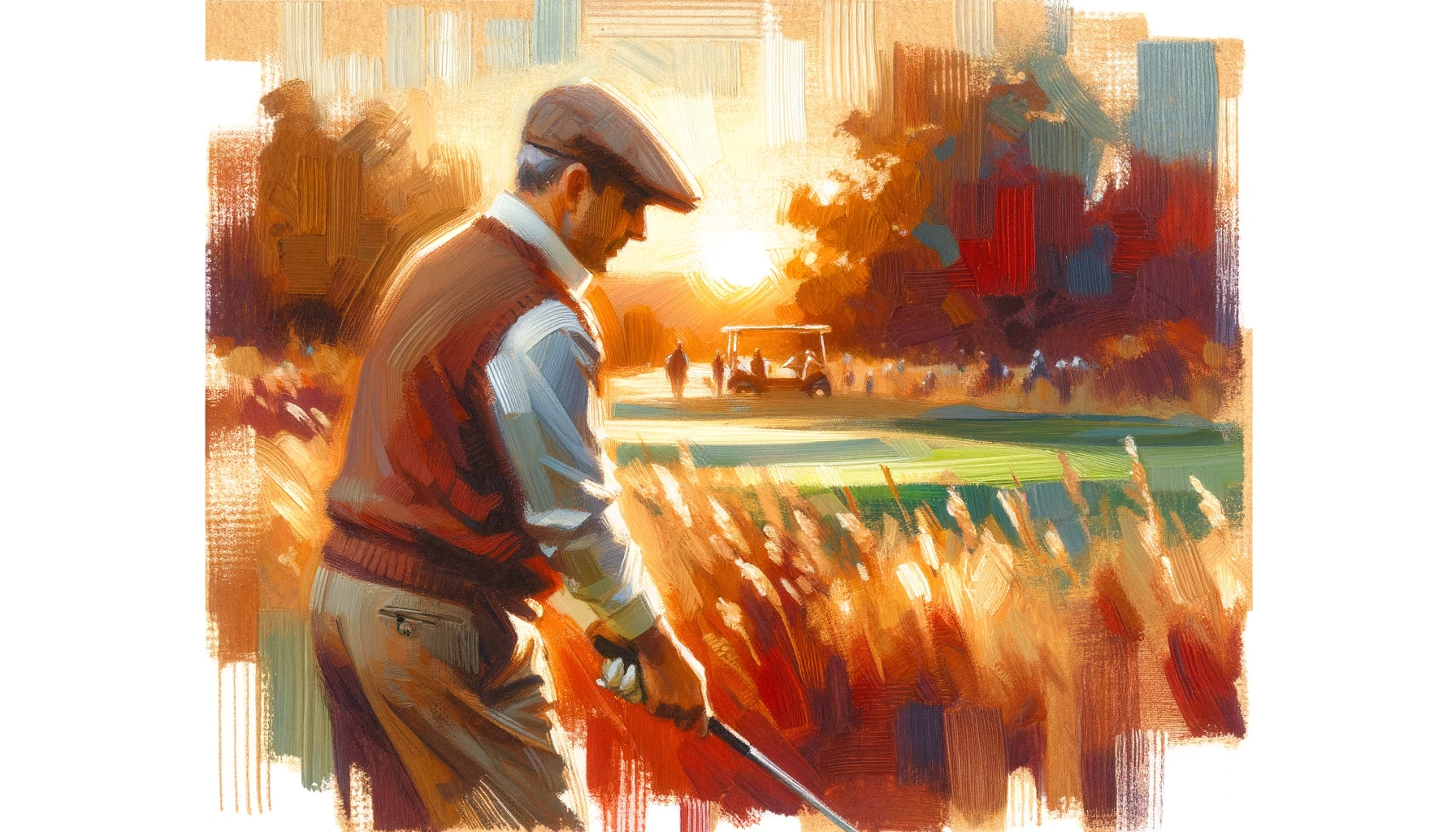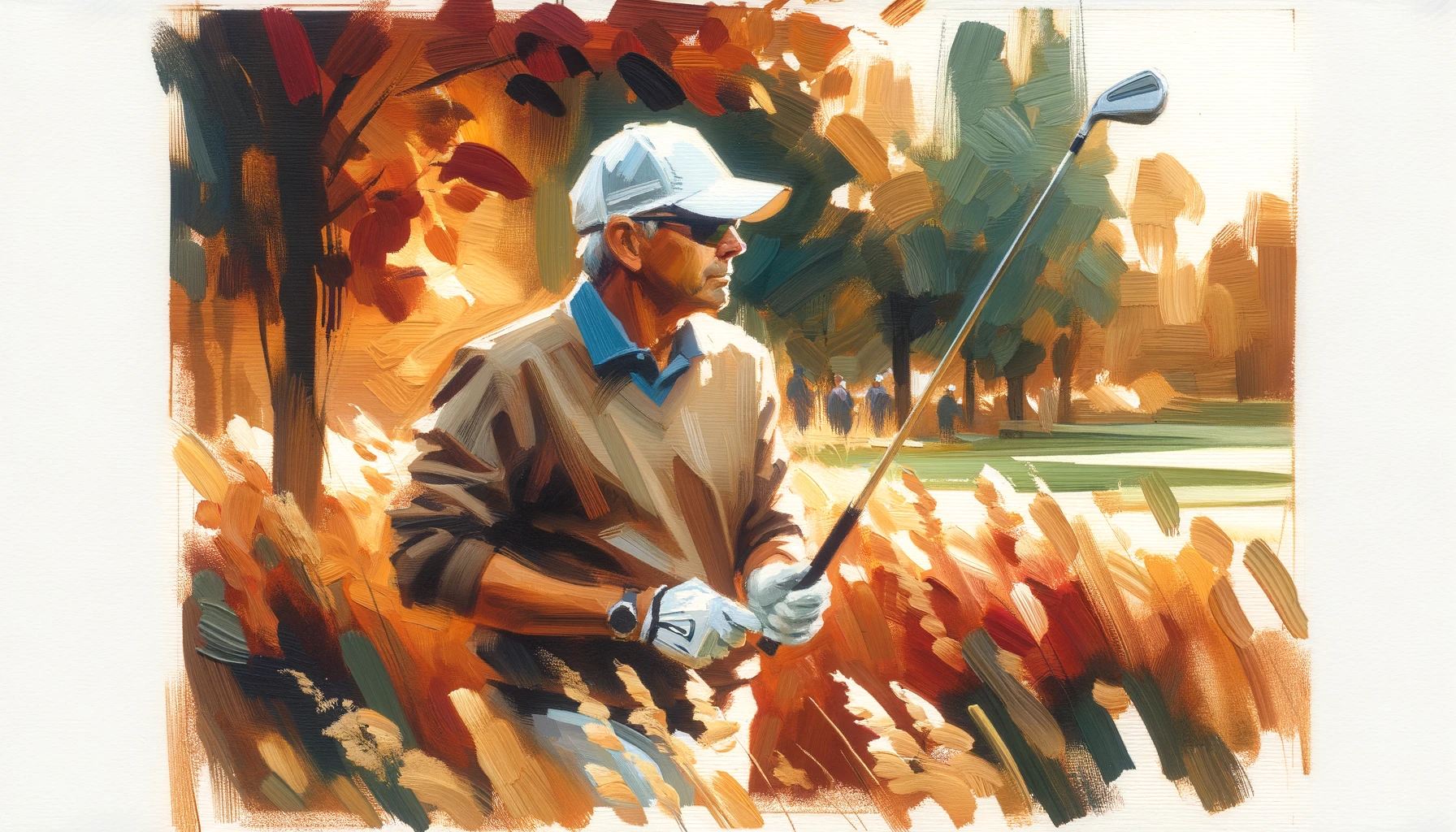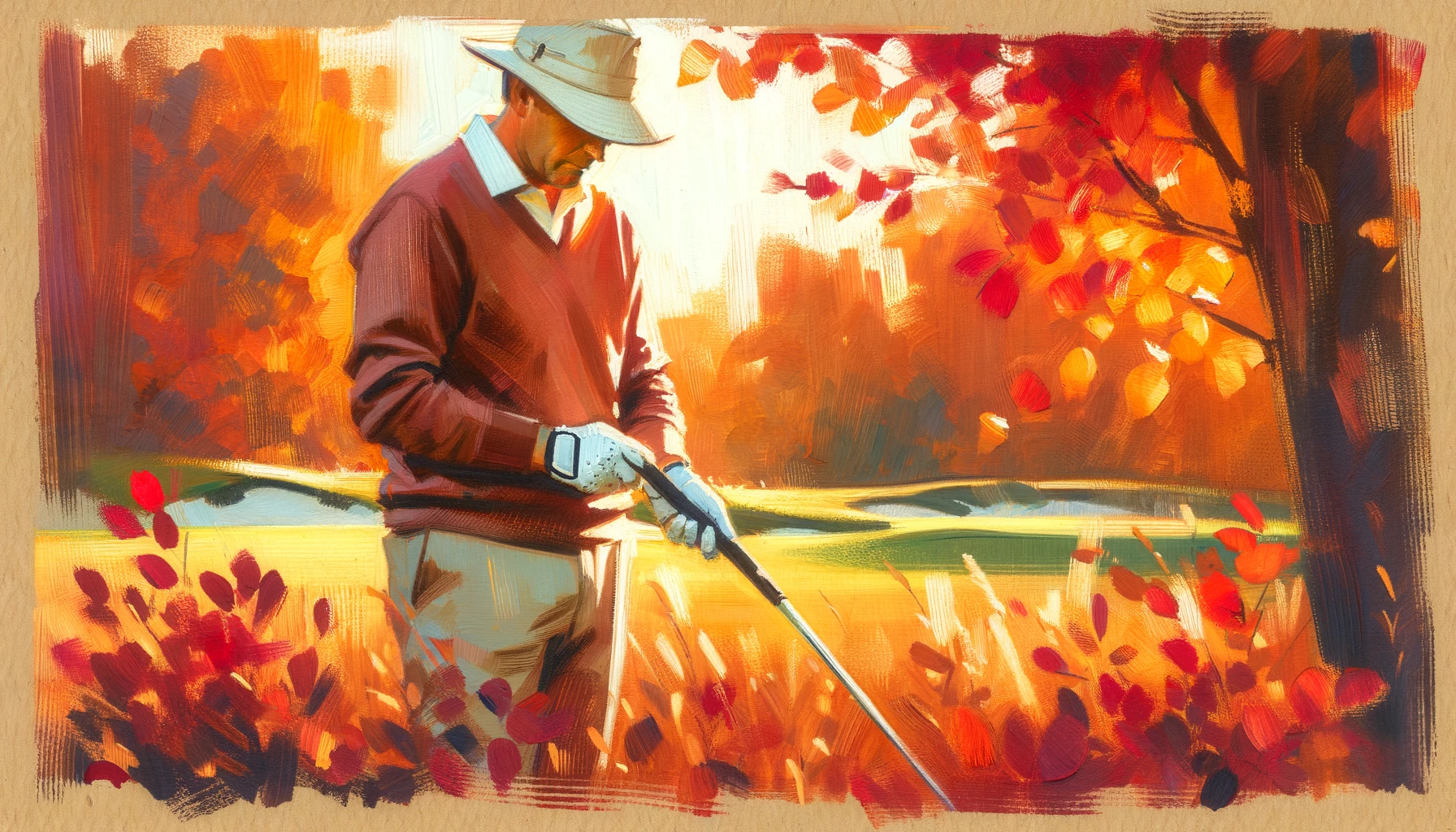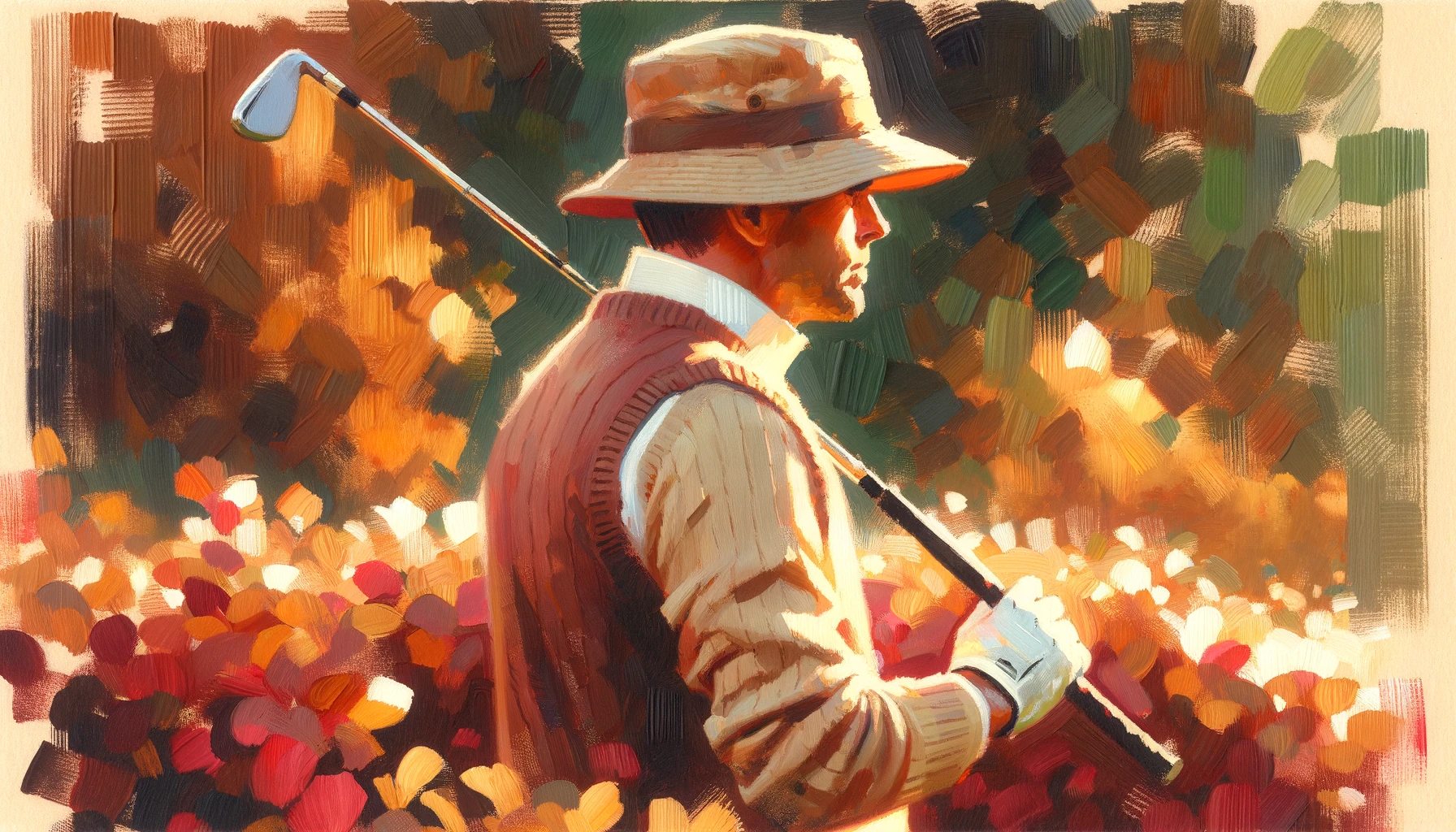Unlocking Your Golf Potential: Mastering Fundamental Skills for Weekend Warriors
Struggling to lower your golf score and outdrive your buddies? The key lies in developing fundamental skills. This concise guide dives into the essentials of grip, stance, and swing mechanics, offering clear, actionable advice to transform your game. Whether you're a weekend warrior or aiming for advanced improvement, mastering these basics is your first step towards consistent, powerful play. Discover quick wins and the top FAQs to get you on the fairway with confidence.
Are you tired of being the inconsistent golfer who always seems a few strokes away from glory? I get it. The frustration of not living up to your own expectations on the golf course can feel like a heavy bag of clubs you're lugging around. You're not alone in this journey. The quest to lower your score and outdrive your buddies has led many to seek the magic trick that transforms their game overnight. Yet, here we are, still searching for that breakthrough.
The golfing world is teeming with promises of quick fixes and insider secrets, claiming to turn you into the next golf sensation. But let's face it, the confusion and clutter of information have often left us swinging in the dark, hoping for that one lucky shot. It's not your fault. The overload of mumbo-jumbo and so-called "revolutionary" techniques has made it challenging to figure out where to even begin.
Here's the good news: Mastering fundamental skills is the cornerstone of transforming your golf game. It's about getting back to basics and focusing on the solid foundation that every great golfer builds upon. This article is your guide to developing those crucial skills that promise not just a fleeting improvement but a total game revolution. From grip to swing, from the driving range to the mental game, we're diving deep into the art of golfing mastery. So, grab your clubs and let's embark on this journey together, turning frustration into triumph one swing at a time.
 A weekend golfer's journey through the art of skill mastery.
A weekend golfer's journey through the art of skill mastery.My Journey to Mastering Fundamental Skills
I started my journey as a novice golfer, filled with enthusiasm but lacking direction. My scores were high, my swings inconsistent, and my understanding of golf fundamentals was superficial at best. I was stuck in a cycle of trial and error, with little to no improvement.
Determined to change my game, I dove into countless resources, from online tutorials to golf magazines. Despite my efforts, progress was slow, and my frustration grew. It became clear that random tips and tricks weren't enough to truly improve my skills.
My breakthrough came when I discovered a structured program focused on developing fundamental golf skills. This program emphasized the importance of grip, stance, and swing mechanics, providing a clear path to improvement that I had been missing.
As I embraced this new framework, I started taking lessons from certified instructors, dedicating time at the driving range to practice with purpose. This focused approach allowed me to build muscle memory and consistency, transforming my understanding and execution of the game.
The transformation was remarkable. Not only did my scores improve, but my confidence on the course skyrocketed. Golf became more enjoyable, and I found myself competing with more experienced golfers. This journey taught me the invaluable lesson that mastering fundamentals is the key to unlocking potential in any skill.
Taking the First Swing: Why Lessons Matter
Remember the first time you held a golf club? That mixture of excitement and uncertainty, the dream of hitting the perfect shot. For many of us, those initial swings were less about technique and more about the sheer thrill of the game. However, as we quickly learn, golf is a game of finesse, skill, and, most importantly, fundamental techniques that can make or break your experience on the course.
Taking lessons from a certified golf instructor is not just an investment in your hobby; it's a commitment to radically transforming your gameplay. Imagine having a mentor who can pinpoint exactly where you're going wrong and provide you with the insights and adjustments needed to correct your path. This is the power of professional guidance. A certified instructor brings years of experience and a keen eye for detail that can fast-track your progress, shaving strokes off your game that you struggled with for years.
Practice makes permanent, as they say, and nowhere is this truer than at the driving range. It's one thing to understand the theory behind a solid grip, stance, and swing mechanics; it's another to engrain these fundamentals into your muscle memory. Regular sessions at the range, under the watchful eye of your instructor, can transform these learned techniques into natural, fluid motions. This is where you build the consistency that's so crucial to a reliable swing.
But it's not just about hitting ball after ball aimlessly. Effective practice involves setting goals, like working on your balance or perfecting your follow-through, and then methodically working towards them. It's about quality over quantity, focusing on deliberate, mindful practice that translates to confidence and skill on the golf course.
This journey towards mastery is punctuated with moments of breakthrough and frustration alike. But with each lesson, with each swing, you're building a foundation that will carry you through countless rounds of golf. The key is persistence and the willingness to embrace the process of learning and growing.
So, as you stand at the driving range, remember that each shot is an opportunity to refine your technique, to build that muscle memory, and to inch closer to the golfer you aspire to be. The path to golf mastery begins with a commitment to developing these fundamental skills, one swing at a time.
 Embrace the challenge: Elevating golf skills one swing at a time.
Embrace the challenge: Elevating golf skills one swing at a time.Practicing with Purpose at the Driving Range
The driving range is your laboratory, a place where you can experiment, adjust, and refine your swing without the pressure of the course watching every move. Here's where the magic of muscle memory and consistency comes to life, turning the theoretical knowledge gained from lessons into practical skills that stick.
First off, approach each session with intention. Don't just rake balls and hit them with no purpose. Start with a warm-up routine that gets your body loose and ready. Then, focus on specific aspects of your swing. Maybe today is about perfecting your grip or ensuring your stance allows for optimal balance. Tomorrow could be dedicated to mastering the follow-through or working on swing speed. The key is to have a plan for each session.
Document your progress. Keep a journal or use an app to note what worked, what didn't, and what you've improved on. This record-keeping will be invaluable in tracking your journey and highlighting areas that still need work.
Incorporate drills that challenge you. For example, placing a tee a few inches in front of the ball can encourage you to extend your follow-through. Practicing with a purpose means making each shot count towards your goal of becoming a more skilled golfer.
Engage in mental rehearsal as well. Visualize the perfect swing, the ball's flight, and its landing. Mental practice is just as crucial as physical practice in building confidence and skill.
Finally, don't overlook the value of feedback. Whether it's from a camera setup to record your swings or input from a coach or fellow golfer, external perspectives can provide insights that you might miss on your own.
By turning your practice sessions at the driving range into focused, purposeful exercises, you're not just hitting balls—you're building the foundation for a golf game that's consistent, reliable, and ultimately more enjoyable. So next time you head to the range, remember: every swing is a step towards mastery, every session an opportunity to grow.
The Art of the Swing: Beyond Just Hitting the Ball
Mastering the art of the golf swing is akin to a musician learning to play an instrument. It's not just about the mechanics; it's about the harmony between body, club, and ball. A great swing is a blend of technique, rhythm, and power, all coming together in a moment of pure synchronicity.
Understanding the grip is your first step. Your grip is your only connection to the club, and it sets the stage for everything that follows. A grip too tight will restrict your swing; too loose, and you lose control. Finding that perfect pressure that allows for flexibility yet control is key.
Next, your stance sets the foundation. A good stance aligns your body with your target and provides the stability needed for a powerful swing. It's about balance and ensuring that your feet, hips, and shoulders are properly aligned to support the swing path.
The swing mechanics are where the technical mastery comes in. From the backswing to the downswing, every movement should be fluid and controlled. This is where lessons and practice pay off, as you learn to synchronize your body movements to create a smooth, powerful swing that sends the ball flying towards your target.
But a great swing doesn't stop when the ball takes off. Follow-through is crucial for directing the ball's path and finishing your swing with balance and poise. A complete follow-through ensures that you've given the ball your all, guiding it on its journey down the fairway.
Remember, developing a consistent and repeatable swing takes time and patience. It's a journey filled with adjustments, learning, and, most importantly, understanding the unique rhythm that works for you. Embrace the process, and with each swing, you'll find yourself getting closer to that ideal shot that feels effortless and looks majestic.
So, step up to the ball with confidence. With a solid grip, a balanced stance, and a swing that's been honed through practice and dedication, you're ready to master the art of the swing. It's not just about hitting the ball; it's about creating a moment of perfect unity between golfer, club, and ball, a moment where everything just clicks.
 The serene beauty of golf: Merging skill, nature, and passion.
The serene beauty of golf: Merging skill, nature, and passion.The Mental Game: Developing Confidence and Focus
Golf is as much a mental game as it is a physical one. The difference between a good shot and a great shot often lies in the golfer's ability to stay focused, calm, and confident. Developing a strong mental game is crucial for anyone looking to improve their performance on the course.
First, let's talk about confidence. Confidence on the golf course comes from preparation and practice. The more you understand your swing, the more you've practiced your shots, and the more you've prepared for different scenarios, the more confident you'll feel stepping up to the ball. Confidence also comes from visualization. Before each shot, take a moment to visualize the perfect shot. See the ball flying towards your target, and believe in your ability to make it happen.
Focus is another critical aspect of the mental game. On the golf course, a myriad of distractions can pull your attention away from the shot at hand. Learning to focus means learning to tune out these distractions and center your attention on the ball and your intended shot. Techniques like deep breathing, a pre-shot routine, or a focus word can help keep your mind sharp and clear.
Overcoming first-tee nerves is a common challenge for golfers of all levels. The key is to normalize the experience and use your nerves to your advantage. Accept that it's normal to feel nervous, and then focus on the excitement and opportunity the shot presents rather than the fear of making a mistake.
Remember, the mental game is built over time, through experience, practice, and reflection. After each round, take time to reflect on your mental performance. What worked? What didn't? How can you improve? This ongoing process of self-reflection and adjustment is what will lead to a stronger, more resilient mental game.
So, as you continue to work on your swing, your grip, and your stance, don't forget to give equal attention to your mental game. Confidence and focus are the silent engines of great golf, powering you through challenges and leading you to victory, one focused shot at a time.
Equipment Insights: Choosing the Right Tools for Improvement
In the quest to lower golf scores and enjoy the game even more, selecting the right equipment is a crucial step. It’s easy to get lost in the sea of brand spanking new drivers, balls, and gadgets promising to revolutionize your game. However, the key is to focus on what genuinely improves your performance and suits your style of play.
First and foremost, let’s debunk a myth: The most expensive equipment is not always the best for every golfer. It’s about finding the right fit for your swing and your game. For instance, a driver with the correct loft and shaft flex can make a significant difference in your tee shots, potentially adding yards and improving accuracy.
When it comes to golf balls, it’s not just about picking the brand your favorite pro uses. Golf balls come with different characteristics designed for various playing styles. Some offer more spin for control around the greens, while others are engineered for distance. Experimenting with different types of balls can help you find the one that complements your game best.
Don’t overlook the importance of a good fitting. Many golf shops offer fitting services where experts analyze your swing and recommend equipment tailored to your specifics. This personalized approach can unlock potential in your game that off-the-shelf equipment simply can’t match.
Lastly, remember that while the right equipment can aid your performance, it’s not a substitute for developing fundamental skills. The best drivers, balls, and clubs are tools that help translate your hard work into lower scores and more enjoyable rounds.
In essence, choosing the right golf equipment is about understanding your game, knowing what you need to improve, and selecting tools that help you achieve your goals. It’s a mix of personal preference, practical testing, and expert advice. With the right equipment in your bag, you’re one step closer to playing your best golf.
 Unlocking potential on the green: The power of fundamental skills.
Unlocking potential on the green: The power of fundamental skills.Embracing the Golfeaser Manifesto: Living the Golf Dream
The Golfeaser Manifesto isn't just a set of principles; it's a way of life for the weekend golfer looking to transform not only their game but their entire golfing experience. It speaks to the heart of why we play this game: for the love of golf, the camaraderie among friends, and the never-ending quest to improve.
Living by the Golfeaser Manifesto means embracing every round as an opportunity to grow, both as a golfer and as a person. It's about breaking free from the constraints of everyday life and finding freedom on the fairways. It means improving your game to impress your buddies, earn bragging rights, and, most importantly, to enjoy every moment of the journey.
The manifesto encourages us to hunt for those dirty little secrets that shave strokes off our scores, even if we're not the fittest or the most practiced golfers. It's about finding joy in the pursuit of that perfect drive, relishing the skin in the game, and taking pride in our achievements.
But it goes beyond just personal improvement. The Golfeaser Manifesto is about contributing to the golfing community, sharing insights and laughter, and making the golf world a better place, one round at a time. It's about growing social connections, supporting one another, and celebrating every victory, big or small.
So, as you reflect on your golfing journey, consider the core values of the Golfeaser Manifesto. Let them guide your practice, your play, and your interactions with fellow golfers. By living these principles, you're not just playing a game; you're part of a movement. A movement that values fun, improvement, and the sheer joy of golfing.
In embracing the Golfeaser Manifesto, you're setting the stage for a golfing experience that's richer, more fulfilling, and incredibly rewarding. It's about being the best weekend golfer you can be, not just for the sake of lower scores, but for the love of the game and everything it represents.
Next Steps: Continuing Your Journey to Golf Mastery
As we wrap up this guide, it's important to recognize that the journey to becoming a fairway master is ongoing. Each round, each practice session, and each moment of reflection brings you closer to the golfer you aspire to be. Here are some practical steps to keep you moving forward in your quest for golfing excellence.
Continue Learning and Practicing
Never stop seeking knowledge and refining your skills. Whether it's through lessons, watching tutorials, or reading up on techniques, there's always something new to learn in golf. Practice with intention, focusing on areas that need improvement, and celebrate the progress you make.
Set Goals and Celebrate Achievements
Set specific, measurable goals for your game. Whether it's breaking 90, improving your putting, or mastering the mental game, having clear targets will focus your efforts. And when you achieve them, take the time to celebrate. These milestones are a testament to your hard work and dedication.
Engage with the Golfing Community
Golf is not just an individual sport; it's a community. Engage with fellow golfers, join clubs or online forums, and share your journey. The support and camaraderie of the golfing community can be incredibly motivating, and you might just pick up some invaluable tips along the way.
Keep the Golfeaser Spirit Alive
Remember the core principles of the Golfeaser Manifesto. Golf is as much about enjoying the game and making connections as it is about scores and technique. Keep this spirit alive in your practice, your play, and your interactions with the golfing world.
Reflect and Adjust
Regularly take stock of your game. What's working? What needs improvement? Be honest with yourself and be willing to adjust your approach. The path to mastery is not linear, and flexibility is key to overcoming obstacles.
The journey to golf mastery is a rewarding one, filled with challenges, victories, and endless opportunities for growth. By embracing the principles outlined in this guide, you're well on your way to becoming not just a better golfer, but a true fairway master. So, grab your clubs, hit the course, and remember: every shot is an opportunity to grow, to improve, and to move closer to the golfer you dream to be.
Are you ready to take the next step in your golfing journey? Because the fairway awaits.
FAQ: Developing Fundamental Skills
What is skill development?
What is skill development?
Skill development is enhancing specific abilities for better efficiency and effectiveness in tasks, important for both professional growth and personal interests. It involves upskilling, cross-skilling, and reskilling to adapt to various roles.
Why are fundamental skills important in sports?
Why are fundamental skills important in sports?
Fundamental skills form the basis of physical literacy, contributing to a person's ability to participate in sports and physical activities confidently. They ensure a healthy foundation for engaging in various sports, enhancing overall physical well-being.
How can I start developing my skills?
How can I start developing my skills?
Begin by setting clear goals for the skills you want to develop. Identify the gap between your current skills and the desired level. Focus on specific areas, expand your network, and consider getting a coach. Reading, research, and taking relevant courses can also be beneficial.
You're probably thinking it's too late to start developing new skills, right?
You're probably thinking it's too late to start developing new skills, right?
Well, skill development is a lifelong process that can be started at any age. It's about finding the right resources and dedicating time to practice. Many have transitioned into new careers or hobbies successfully by focusing on skill development.
What's the best way to practice fundamental skills?
What's the best way to practice fundamental skills?
Consistent practice with a focus on the quality of execution is key. For sports, incorporating drills that mimic game scenarios helps in applying skills under pressure. In professional settings, applying new skills in projects or tasks can solidify learning.
You might believe that skill development requires formal education, right?
You might believe that skill development requires formal education, right?
Actually, there are numerous resources available outside traditional education. Online platforms, workshops, and community groups offer valuable opportunities to learn and practice new skills, often with more flexibility and at a lower cost.
How can I measure my progress in skill development?
How can I measure my progress in skill development?
Setting benchmarks and tracking performance over time can help in measuring progress. Use specific, measurable goals, and seek feedback from mentors or peers. Reflecting on improvements and challenges regularly will provide insights into your growth.
Is it possible to develop skills without access to professional training?
Is it possible to develop skills without access to professional training?
Yes, self-directed learning through online courses, instructional videos, books, and practice can lead to significant skill development. Leveraging free resources and community knowledge can compensate for the lack of professional training.
You might worry that developing fundamental skills isn't as rewarding as focusing on advanced techniques, right?
You might worry that developing fundamental skills isn't as rewarding as focusing on advanced techniques, right?
Consider that mastering the basics provides a strong foundation that makes learning advanced skills easier and more effective. Those who have focused on fundamentals often find they progress faster and with more confidence when tackling complex challenges.















